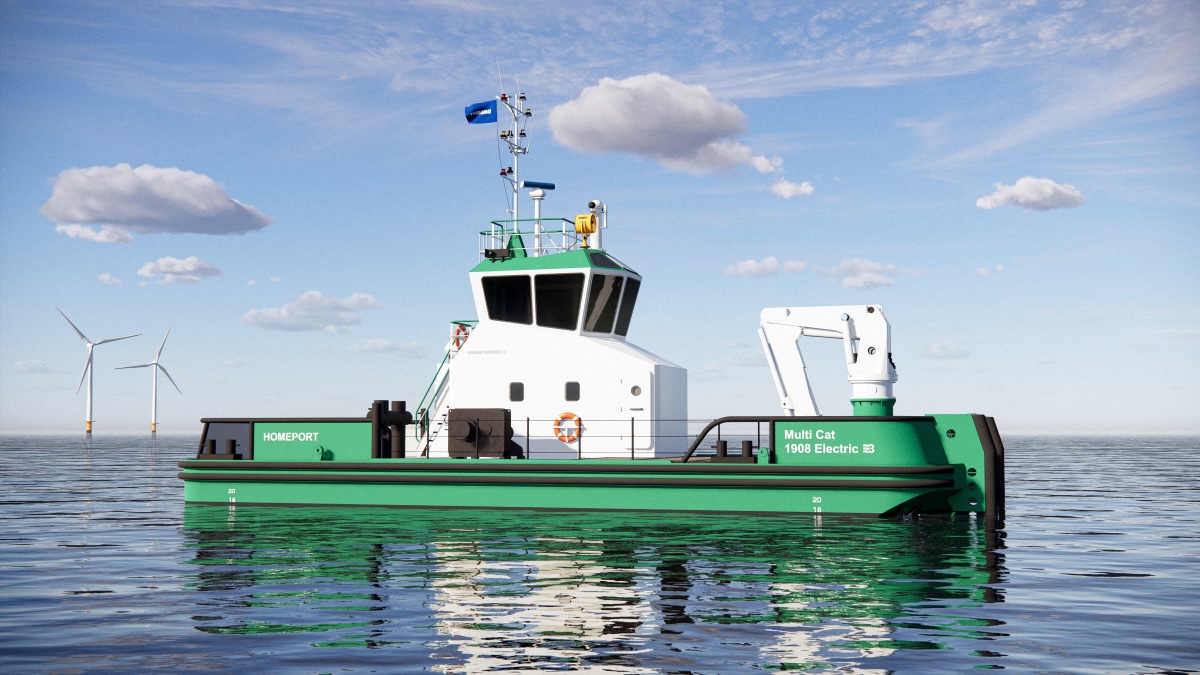I love electric cars. I’ve owned two and have fallen hard, not just for environmental reasons, but more so because they are fast, silent, and virtually maintenance free. And don’t forget that you do not put gas in them!
Why not boats? And why not workboats on the Chesapeake? I have taken the last half of 2024 chasing an idea to convert a traditional Chesapeake Bay workboat into a prototype electric-propelled, sustainable silent harvester of the Chesapeake. My motivations were twofold: 1. help steer the way toward a cleaner and quieter and more sustainable Chesapeake Bay; and 2. acquire my next boat.
Around the world electrification of marine travel is picking up speed with major ferry systems and large scale industrial use boats running on electric. There are also many high end electric recreational boats emerging. And I even found a smattering of electric workboats – mostly in pilot stages in Northern Europe and even some in the Maine lobster fishery. And lastly, electric outboard motors are fast becoming commercially available.
On the Chesapeake, there are a few models of high end electric recreational boats around and I heard there were a few at the Powerboat Show this fall. Regarding workboats, there is mostly just curiosity. I talked with several of the workboat builders in the middle and upper Bay and all had considered electric propulsion. Most came to the same conclusion – Chesapeake Bay workboats are big and beamy and intended to be stable for carrying a lot of weight – and thus require lots and lots of power – which means excessive battery weight and cost. Even more importantly, many of the builders told me the watermen community are not generally early adopters of new technology – especially with their personal safety and livelihoods on the line.
There are some promising examples of prototype electric boats on the Bay for other uses. Brian Palmer has an electric boat team at Washington College which set a world electric boat record this summer for distance on a single charge (167 miles up and down the Chester). Brian has been an eager and incredibly helpful partner in my electric boat quest and remains interested in electrifying all forms of boats on the Bay. Paul Willey and the Chesapeake Bay Foundation were also helpful. They are building from the ground up two aluminum dead-rise style boats with electric/diesel hybrid propulsion for their environmental education programs.
Regarding converting a traditional Chesapeake Bay workboat into an electric one, I’m afraid we are not there yet. The traditional boats are big and bulky, the batteries are heavy and expensive, and the overall systems are still too new to trust for many. A friend following my journey told me “if you were trying to electrify a car you would not start with your uncle’s ‘83 Buick.” Enough said – for now.
I think we will eventually have electric workboats on the Bay, and probably sooner than we think. The batteries and related systems are advancing rapidly. The call for more climate friendly engines is growing. And in the end I think the lure of silent propulsion will win the day. I can’t wait!
Rob Etgen retired in 2021 after a 40-year career in conservation – the last 31 years as President of Eastern Shore Land Conservancy. In retirement Rob is enjoying family and working on global and local sustainability issues with Council Fire consulting out of Annapolis.



Patrice DiQuinzio says
Check out Annapolis Hybrid Marine https://www.annapolishybridmarine.com/our-company.php